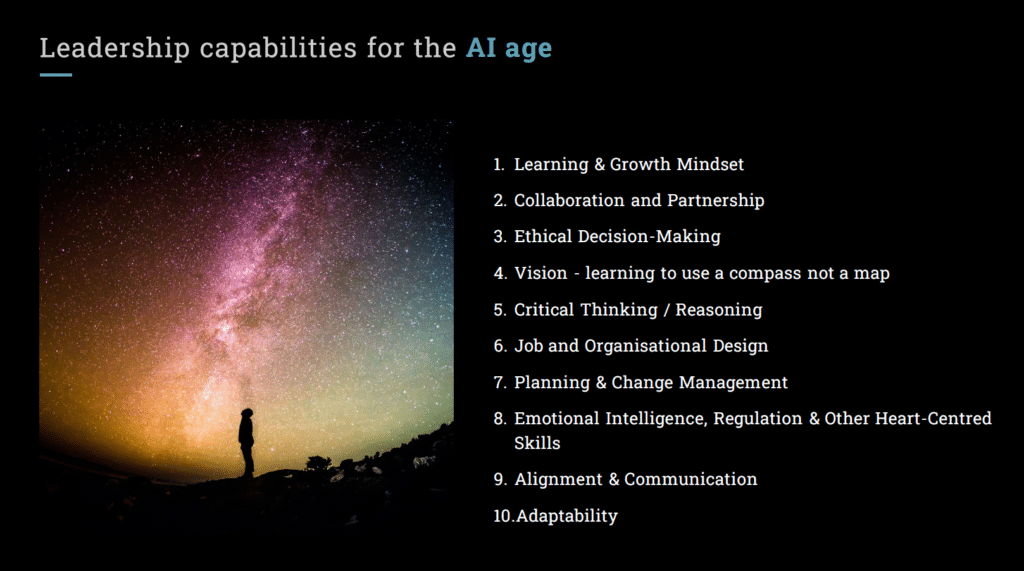Webinar recap: Leadership in the artificial intelligence era
In an AI age characterised by intense disruption and rapid, ambiguous change, we need forward-thinking human-centred leaders with strong self-awareness.
Integrity, empathy, vision, humility, and adaptability are all essential for today’s leaders to navigate the road through unchartered waters.
In a 2022 Gartner survey, it revealed that 90% of participants believed that to succeed in today’s work environment, leaders must focus on the human aspects of leadership. Yet, it also found that just 29% believed that their leader was a human-centric leader.
In a similar survey, it was found that in operating within a human-centric model, employees were 3.2 times more likely to report a high intent to stay, and 3.1 times more likely to report low levels of fatigue.
Angela Franks, Partner Frazer Jones Australia, along with guest speaker Sophie Firmager, Managing Director at Realised Potential Group, conducted a webinar that discussed the leadership capabilities that are crucial in navigating change in the AI age, and the opportunities and challenges that AI creates.
Here are some highlights from the webinar.
Artificial Intelligence (AI) vs. Artificial General Intelligence (AGI). Artificial Intelligence is based on Human Cognition, whereas Artificial General Intelligence is based on Human intellectual ability. Artificial Intelligence cannot acquire new knowledge and skills unless programmed to learn them from time to time. Every individual skill has to be taught to AI, unlike AGI. Artificial General Intelligence’s aim is to acquire new set of knowledge and skills, in real-time, which means, it can learn everything at a single time.
Leaders and organisations are leveraging AI to empower their teams to focus on higher-value tasks, improve efficiency, and achieve better outcomes. Changing how work gets done within the organisation by making operations more efficient, supporting better decision-making, and freeing up workers from repetitive tasks, is core to what companies want to achieve with AI.
Leadership capabilities that are crucial in navigating change in the AI age.

The AI landscape – Examples of organisations leveraging AI.
- Amazon is using a range of AI technologies, including computer vision, machine learning, and natural-language processing, to reinvent mobile computing and shopping. The company’s voice-activated assistant Alexa now controls everything from TVs to cars and is poised to be the next important computing platform.
- Hilton is one example of a hotel company that has embraced AI technology, with the implementation of an AI-powered virtual assistant (Chatbot) called Connie, to streamline guest services by providing information for guest inquiries and automates processes such as check-in to allow staff to focus on other tasks.
- Uber is using AI to optimise their operations and improve driver efficiency since it started operations. AI is used to analyse data on traffic patterns, rider demand, and driver availability, so as to improve efficiency and reduce wait times.
- Dior employs AI via Chatbots and virtual stylus to assist customers by selecting and recommending products based on personal preferences and style.
To watch the full webinar recording click below.
If you are interested in participating in any future roundtable events, please contact Angela Franks, or for details on all other Frazer Jones events please click here.



